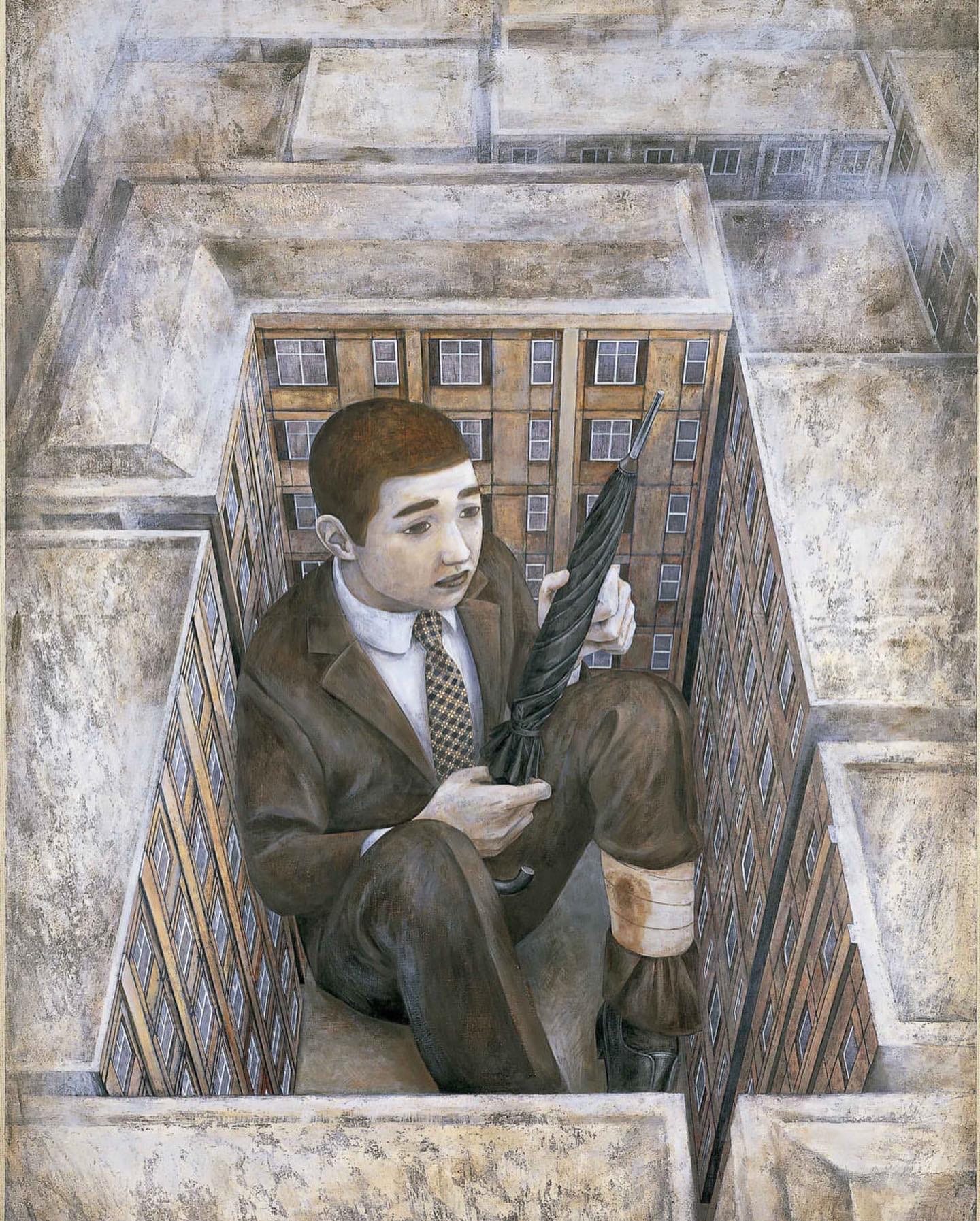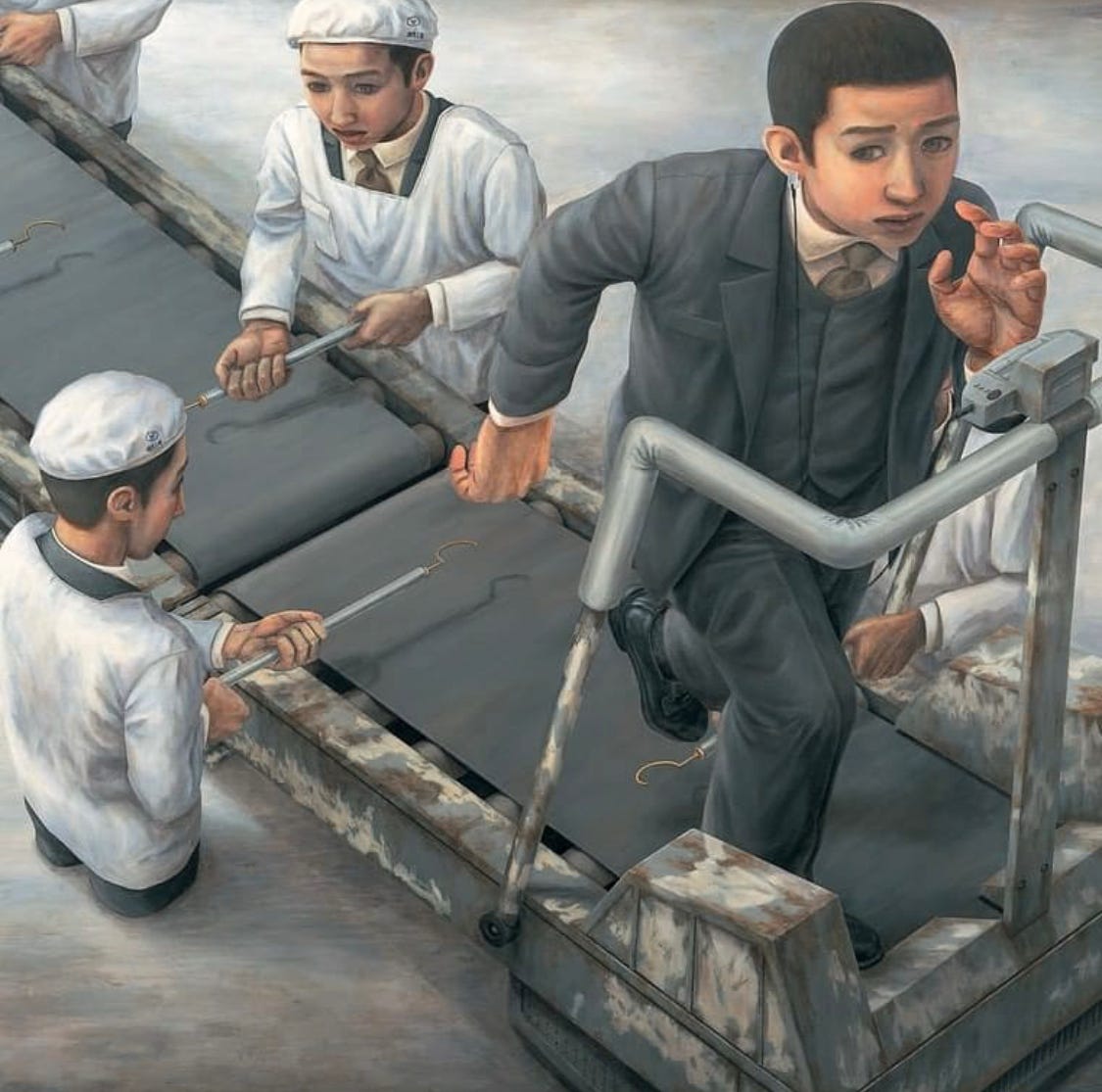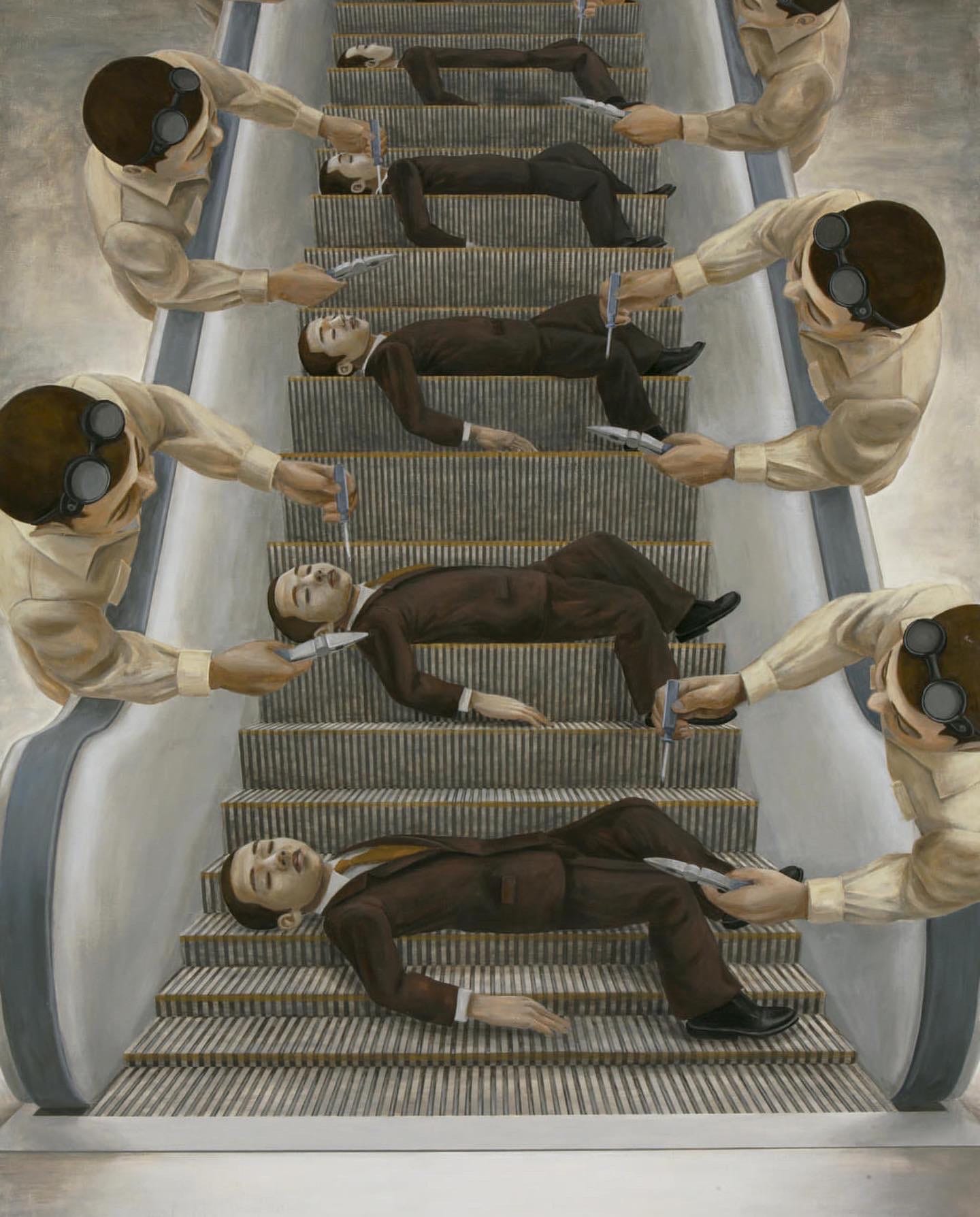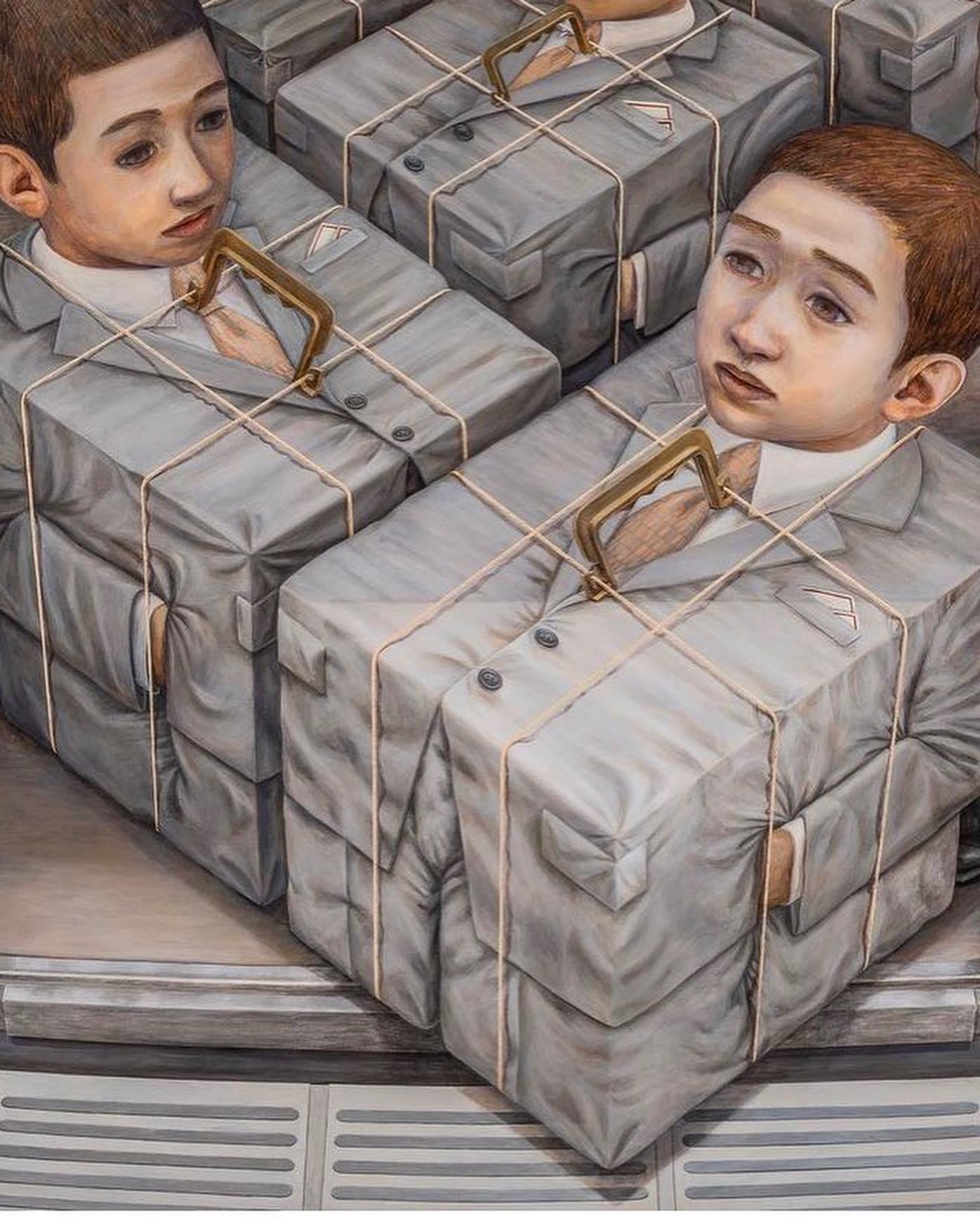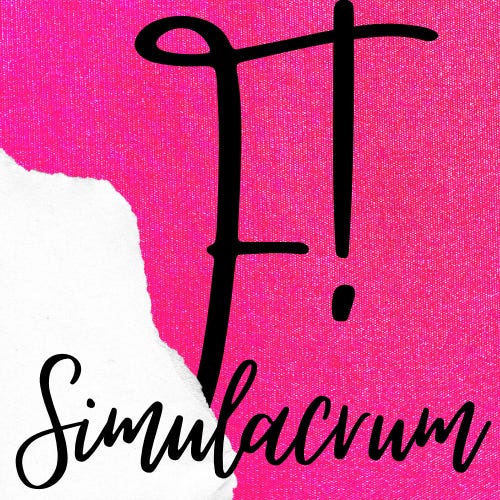From Moscow to Europe and back - to writing. Monday news
“Today is the 17th of May, 2022” - that should have been the opening line of this article, but after the 4th version of it I let it rest in drafts. Today is the 30th of May. I answer your questions.
Who doesn’t want to be free? No one, right? We all want to live without borders, speak without intimidation and fear, do what we want to do, not what we have to do, believe in what we choose to believe. It’s so simple. And yet, we live in a world of rules most of which were made for us by people who died centuries ago. Life is simple, problems are usually our own creations, that includes the distortion of the reality that I call simulacrum here, but someone might think it’s real life until the wakeup call. Will it be news about war or about the school massacre? Video promoted on Facebook about UN food program in Afghanistan that is underfunded and somehow it should solve the problem of hunger and children slavery in the region altogether?
I don’t know. I don’t think there’s any fast solution to anything. I think we live under such a thick cast of illusions and old lies that like old hematoma petrified with time and can be removed only by carving. Or by an explosion from inside. And maybe that’s what’s going on - we witness multiple cracks on the surface through which some of us are lucky to see the blue sky as it is, pure emotions, free of conditions and promises, clear ideas that serve to reconnect actual everyday life to the potential future - I hope global, but who knows?
Those of you who were with me from the beginning know that I’ve started this blog in a hurry. It was an emergency, an urgent reaction of the “special operation” and its consequences in Russia, reaction to sanctions that hit me, among other ordinary people, and turned my life arrangements upside down. I can’t complain because there was no physical damage. It’s not a matter of comparing who’s guilt is bigger and who’s losses are heavier. It’s just a fact.
“Are you in or are you out?”
I, like many other Russians, who lived in the free world sharing their time between countries, who were finally, after 30 years, accepted as equal business partners, as friends, as colleagues, as labour, as family, lost everything and on the 24-25th of February woke up unwelcome everywhere as a “natural enemy” of “free people”. I woke up divided into 2 personalities: a Russian citizen and the mother of an Italian citizen with a permit for stay in Italy. One is a bad one, another is tolerable. Which one is which depends on the side of the Russian border, there’s an obvious switch. Interesting experience, I must say, to be not bad enough but not good enough either. Just enough. Precisely enough to survive. For now.
What does it mean in Russia? It means that as far as I’m an “influencer”, official founder of a media company, that doesn’t function at the moment, but nevertheless, and I’m a journalist, collaborating with foreign media, plus running this particular blog, I live with a target on my back. It takes one good samaritan to send me to the court once or twice and then I’ll be either out of the country or deep in its darkest corner observing the middle of nowhere dressed in brownish iron and blue tartan.
As for other threats - my worst enemy is ruble. It gets stronger, I get more and more vulnerable but independent from my profit in euros. And the rouble gets stronger thanks to the sanctions. When Bloomberg welcomed me yesterday with their weekly news reports saying that the ruble lost 12% of its value after the last Central bank’s regulations, and that was according to the news outlet a sign of a weakened economy, well, it was good news in reality for the Russian economy and for me. And bad news for Bloomberg that doesn’t have an adequate expert on the Russian economy. Strong ruble is a problem, not otherwise. 12% is nothing, it returned half of it today after people got rid of the foreign currency they collected before it became a “toxic” investment.
“What is going on in Russia? How are the people? Prices?”
Today I reply to the questions I’ve been asked. This one is the first and the most common. If you want to know what Russian life is like today, meanwhile prices in Europe are rising and energy costs have doubled since March, then I must say there’s not much to share. It’s the same as before the sanctions. Yes, just after the “special operation” prices jumped and people in panic went to buy all the emergency products. In Russia there’s a proverb for such a “buying” - storing “in case of a nuclear war”: sugar, crops, oil, salt. After brands declared their exodus, there were few addings to the list - sanitary pads, cosmetics, medications. Maybe someone went to buy Chanel or Macdonald’s for the last time I can’t tell, but luxury is still in the country if someone is interested, as well as all the fancy and regular restaurants.
After 3 months everything is back to normal - from Porsche and Lamborghini, Bottega Veneta, fresh Kamchatka crabs and black caviar for the rich to normal summer markets - for others. Night life is boiling. Yes, we expect that something will be difficult to buy or to repair, and that the Internet won’t be one of the fastest in Europe anymore. But, I doubt it will turn into the same joke as it’s in Italy.
From obvious changes - I see more old cars. Not old old, normal old, but extremely old like Soviet time old. Such relics I don’t know where they were hidden all those years. So maybe Moscow will look like Athens in that regard - sometime in December or next summer. If there’s no nuclear war, of course. People are frightened here as much as in Europe.
As for the protests or any sort of manifestations, they went underground. People are divided and discussions cause only battles that lead nowhere. The situation is complicated by the fact that almost every one has either relatives or friends in Ukraine and the information they receive from them is as different as media messages from different sides of the front. The only thing that unites is the thought that it should be finished as soon as possible and the overall feeling of frustration.
Authorities made it obvious that they don’t care about any opinions, they want to see stillness and silence in the air. “For Putin”, “against Putin”, “for special operation”, against it - it doesn’t matter. All independent media and all opinion leaders are in the list of “foreign agents”, most of them closed or left the country. Talking isn’t prohibited, you just accept the price of being heard and noticed. That’s all. So people try to do things quietly. Or better to ignore everything they can’t change. And reply “yes” to any official question asked, keeping sarcasm for Telegram.
And if in relation to the country’s foreign affairs there’s no common opinion, in relation to Europe most of the Russians feel betrayed, robbed and rejected as people. It is what it is. Someone can say about the “collective responsibility”, forgetting Trump, Johnson, abortion problem and gun’s control, racism and so on, blaming Russians for Putin. Others can say that sanctions were the only way to stop the war. The New York Times called it to “punish Russia” now, it’s a bit of a different intention and it caused an obvious opposite reaction. I leave it simple as a fact - Russian people are united against the West no matter their controversial relationship to the Ukrainian conflict and the common dream to end the disaster finally. They feel trapped. As far as they are used to surviving, it’s not the first time the trust was broken by their own President and by the West.
“How do you transfer money? What is with sanctioned banks? How do you travel?”
So as you see we live in the expectation of the promised disaster, and by “we” I mean not just ordinary Russians, but the economists, people in power. There are changes that have a lot to do with social restructuralization, turning the country into its version from the 90s, because people that were strong, honest and solid, with their opinion, are not welcomed anymore. The time of hyenas came. But as for the economy, I think, we are as surprised as the West. We are not just standing and breathing, we are functioning against the laws of common logic. I don’t want to dive into the reasons. The Russian economy is slowed down, it’s damaged, but the effect will be more obvious in September. At least it’s what Russian experts say. And the government is set to support all the business initiatives including those that were considered as quasi-criminal before.
All that time I’m waiting to lose access to my Italian bank account. I was lucky to be a client of Russian and Italian Unicredit, so SWIFT is still an operational option for me and as long as I’m not sanctioned and have a permit for stay in Italy, both my accounts are fine. I lost my clients with the war and I exist in 2 parallel financial dimensions that lose touch to each other. The sense of euros in Russia is close to “nothing”, and my Russian assets abroad already mean nothing. My Italian bank card works everywhere but Russia, my Russian bank cards are useless abroad. As long as my income is in euros and my loans are in rubles, it means I’m doomed to survive despite the economic laws or any laws if it matters.
Someone used crypto currency for the way out, but sanctions hit on that market as well. Plus the rate went down for bitcoin and etherium. Nevertheless it’s still an option to play with for investment or for withdrawing currency avoiding Russian Central Bank’s restrictions.
Direct transfers stay as an option to send small sums from and to Russia (I tried Paysend, it worked). But for the bigger transactions people travel to Kazakhstan or Armenia to open bank accounts for business. It is the most popular practice. It helps to cash currency and to use those accounts for payments abroad which is very important for companies dealing with foreign clients in the sanctioned industries - luxury and jewellery, for example, or import and export of technological goods.
As for the travel Aeroflot slowly restores its routes to the countries where the sky wasn’t closed for Russian civil aviation, that includes Istanbul - the most important city for Russian immigration since the Revolution in 1917. Crossing the border by air is the only option for those who doesn’t have “significant reasons” to leave Russia, because “COVID regime” is still active and for leaving the country or for entering the EU members by foot or by bus or by car is impossible for those who have only a travel visa.
If you ask me how I travel, I say I use a bus from Saint-Petersburg to Helsinki. But I can do it because I have a permit for stay in Italy and it’s enough reason to leave Russia and to use Finland for transit.I witnessed as few people were denied right to leave Russia, because they didn’t have right documents, and couple couldn’t enter Finland because Finland according to their rules doesn’t allow transit for ordinary travellers. On my way back, an American family was left at the Russian border - not enough reasons to enter the country.
In general there’s a differentiation between bus passengers when they are invited to the passport control at the Russian border: the most problematic are citizens of the USA and UK (their documents are checked more thoroughly), then Ukrainian citizens (they are the subject of interrogation for the security reasons, men mostly searched for the marks on their body - bruises after shooting, wounds and tattoos, and their story is checked as well).
There’s no such thing as a green corridor at the customs, you need to be ready to prove that your laptop or your camera or your medication isn’t the subject for declaration. There’re restrictions on cash amount as well.
Conclusion is simple: if you want to travel like before you need to fly, the trip to Europe if not through Serbia will take the same amount of time as a trip by bus - not less than 7-8 hours and it will cost altogether not less than 700 euro in one direction. If you can solve the problem of buying tickets online (Russian bank cards accepted only by Russian ticket agencies), you are fine. The next problem is to pay for hotels or for rental apartments. Airbnb doesn’t support Russian clients any more, by the way, payment options are unavailable.
“How does Europe react to Russians? Is it dangerous?”
Well, at the moment it’s better not to be Russian in Europe especially if there’s no European permit for stay or second citizenship. But even with another passport your bank account can be frozen and money transfers denied. With a travel visa you might be rejected as a hotel guest, definitely you will have problems crossing borders inside Europe (you should be prepared to answer the questions). Plus sanctions prevent selling euros to Russian citizens in the banks, withdrawing euros in cash machines can end up with blocked accounts even for those who weren't sanctioned, so you should be prepared to bring a lawyer to your European bank. Everything is unpredictable and unreliable. Russian citizens or people with Russian names can lose jobs, have problems with their savings or with their businesses. That includes owning foreign companies or managing them.
You should be prepared to answer the questions about the conflict, about Ukraine, Putin, COVID. It’s better to avoid speaking Russian in public places, or be ready to face suspicious sights and sudden aggression. I can’t say there’s something really bad and like never before. For those who were abroad for the first time in the end of the 90s, there’s nothing new - the same arrogant waiters’ faces when you sit in a restaurant, discrimination in shops, interrogations at the passport control in airports. Once again “you should be prepared”: documents, money, manners. The same trouble but in a different context.
“How are you? Was it COVID?”
I want to thank all who asked and cared. I caught a cold. That wasn’t serious, there’s a version it was my organism’s reaction to the troubled journey a week before. Everything is possible. It wasn’t COVID. I’m almost fine. As you see I’m writing again.
About the plans on this blog
I will continue writing and observing the news. I hope there will be less social and political subjects and more of the fashion industry and jewellery, maybe art, as it was supposed to be when I first thought about Substack as a platform. I will share here my last printed interviews and articles, and hopefully new pieces.
I hope sanctions and conflicts as well as conditions in my country won’t stop me from talking to people and writing new stories. I will try to keep it as broad as possible, using all the opportunities for social subjects as well.
There’s a lot of questions I’ve been asked on Instagram - from book recommendations (I will continue posting, but here are links to the previous: 1st and 2nd lists) to the history of fashion or future of it. I will try to answer, choosing one subject per week.
I’m about to finish the Propaganda textbook - only 2 chapters are left (Chapters 1, 2, 3, 4, 5 and 6 are done), the next will be textbook on Instagram content management and organic growth.
That’s all for today. If you want to ask something, don’t hesitate to answer in the email, or leave it in the comments.
I appreciate your support, your paid subscription helps me to survive, and motivates me to write as well. Technically you crowdfund my work, thank you! If you want to subscribe, login into Substack and choose the paid subscription option. If something doesn’t work, let me know.
Thank you for reading. And have a great day.
My platforms
Instagram: https://www.instagram.com/zakharova_kaetano
Twitter: https://twitter.com/olga_kaetano
Telegram: https://t.me/f_simulacrum
Tumblr: https://fashionistaru.tumblr.com
If you like F! Simulacrum and want to help make it even better, give me feedback, point out factual errors or typos, or send me news subjects you want to describe. My email: o.zakharova@adlifestudio.ru
Substack says you can now read my F! Simulacrum in the new Substack app for iPhone. And it will be easier and more comfortable.




